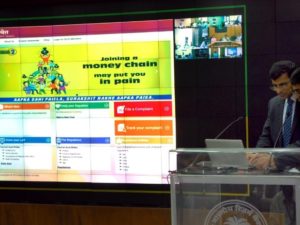India is providing detailed evidence to the World Bank on ease of doing business as it seeks to break into the top 100 countries on the bank’s index from its current rank of 130.
Officials said logs of construction permits, containerised cargo movement at ports and setting up of a company are being provided to World Bank as part of the Narendra Modi government’s efforts to ensure it does not miss any point to score to improve India’s rank.
World Bank officials had a few queries for the Department of Industrial Policy & Promotion (DIPP) when they met on August 1 after completing field inspection and verification of claims over the 14 parameters on ease of doing business.
While the World Bank does not share its findings, one observation made by its team was that people were carrying paperwork to the offices of the Employees’ Provident Fund Organisation even as registration was made free of all physical touch-points. “We clarified that it is only for claims that one needs to file the papers,” said a senior DIPP official, who did not wish to be identified.
Besides, DIPP is now gathering its own evidence for cases where it feels respondents have not have kept in mind the assumptions made by the World Bank study.
“In case of construction permits the study is limited to warehouses or buildings on the outskirts or setting up of a company parameter is only for domestic enterprises and not how long it takes for a foreign entity,” the official said.
DIPP is taking a proactive approach to provide evidence on its part even after the field investigations have been wrapped by the World Bank team. Final rankings will be announced in October. The ranking considers business environment in Delhi and Mumbai. India compares unfavourably even with countries such as Mexico, which is ranked 38, and Russia, which is at 51. Prime Minister Modi has set a target for India to be in the top 50 in three years.
Specific areas DIPP has targeted are starting business, insolvency procedures, construction permits, ease of trade across borders and electricity connections. According to the department, total number of days required to start a business has been reduced to 12 from 29 in the past year. A team of researchers spent two weeks in Delhi and Mumbai talking to actual users and stakeholders to study and verify implementation of reforms, officials said.
Source : http://economictimes.indiatimes.com/articleshow/53716006.cms





